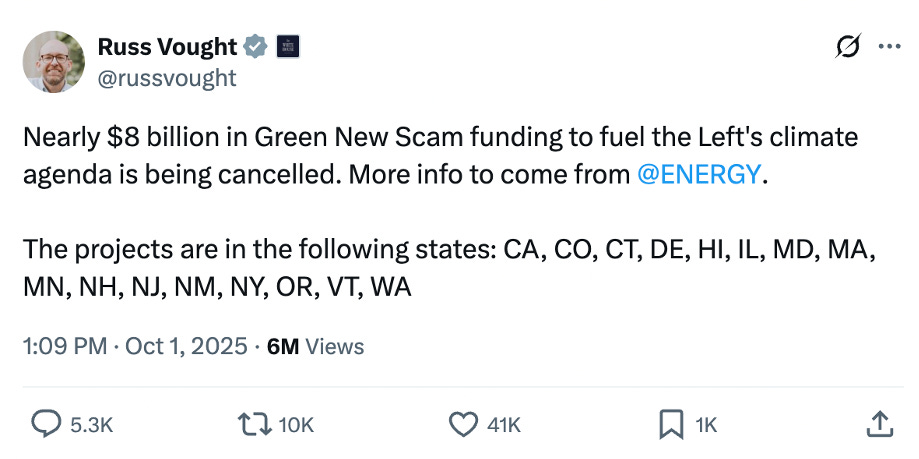The Weekly Memo: The Bureaucracy
Left-wing media outlets and organizations have expressed their outrage at the notion of President Trump keeping a simple campaign promise: to reduce the federal bureaucracy and slash harmful government regulations. While government has grown in a bipartisan manner – both Republican and Democrats have contributed to the problem over the years – condemnation for the growing bureaucracy used to also be bipartisan. After all, it was President Bill Clinton who said in his 1996 State of the Union Address that, “The era of big government is over.”
In recent years, the protection of the administrative state has become a key doctrine of the Left’s agenda.
The events of the last week in Washington have only highlighted this divide. Shortly after Senate Democrats forced a government shutdown onto the American people by demanding $1.5 trillion in radical spending on things like taxpayer-funded healthcare for illegal immigrants, OMB Director Russ Vought began announcing numerous cancellations of federal funding. President Trump also noted the “unprecedented opportunity” to make sweeping cuts to the bureaucracy.
To put the problem in perspective, the Code of Federal Regulations (CFR) in 1960 contained 22,877 pages. In 2019, the page count had grown to 185,984, according to research from the Competitive Enterprise Institute. Below is an illustration of the regulatory growth, from The George Washington University Regulatory Studies Center.
The bottom line is this: you cannot seriously claim to be looking out for the future of our nation, if you are unwilling to tackle the growing unaccountable bureaucratic state that is not only stifling economic growth, but greatly contributing to our astronomical debt and deficits. Thankfully, President Trump and his team are putting Americans first by addressing this pressing issue.






